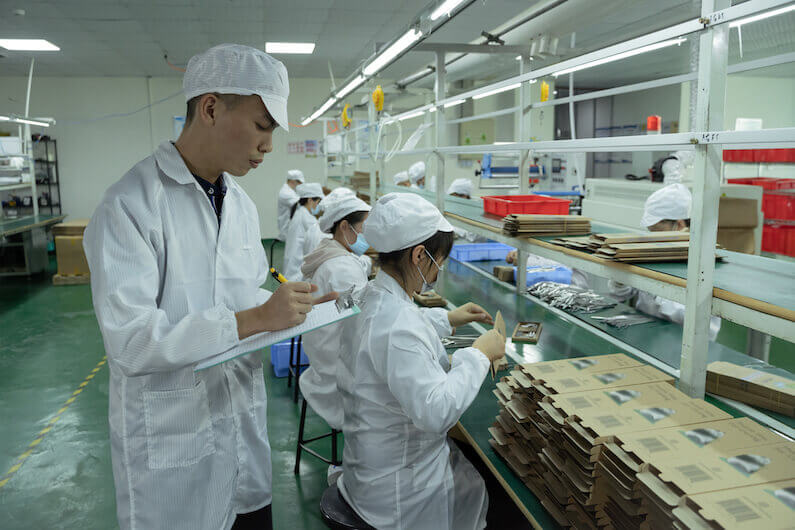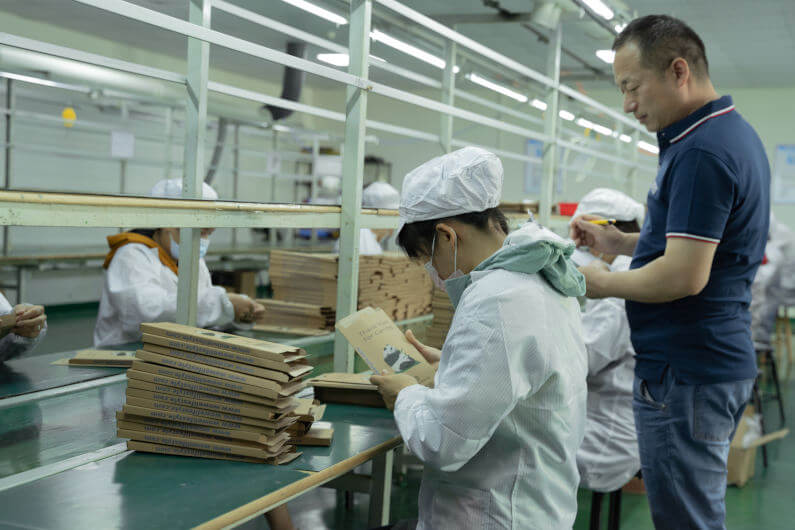Finding a trustworthy supplier is key if you’re looking to establish an effective and efficient supply chain. Sometimes, a supplier relationship can start off great, but new issues develop over time, such as a decline in quality, shipping issues, or social accountability problems. Other times, performance doesn’t decline, but it doesn’t improve either — your supplier delivers the same consistent results over a long period.
However, no process or company can afford to be stagnant. So, as your company improves and evolves, how can you ensure your suppliers and manufacturers will as well? The answer is supplier development. In this article, we’ll explore what supplier development is, why it’s important, and the benefits it brings to your business.
Table of Contents
What is Supplier Development?

Supplier development is the process of collaborating with strategic suppliers to improve their performance. Supplier development typically works to increase capability and capacity in the areas of product development, social compliance, manufacturing, and shipping, among others.
This process should be systematic, strategic, and goal-oriented. It is a collaborative initiative that ultimately benefits both parties. When you assist your supplier with addressing issues, you’re helping them to develop.
Why is Supplier Development Important?

As your company grows and evolves, your manufacturing needs will shift. Supplier development is important because it ensures that your supplier will evolve with you. You don’t want to outgrow your supplier or manufacturer and be forced to find a replacement. It’s easier and cheaper to fix issues in your existing business relationship than to go out and try to forge a new one.
Sticking with and growing with your supplier also fosters trust between your companies. Building dependable business relationships is critical to the success of your supply chain. It’s worth the effort to try to work out issues with your current supplier — chances are, they’ll be appreciative of your efforts and take the opportunity to improve.
Implementing a supplier development initiative may seem daunting, but it can be broken down into five easily comprehensible steps. Read our previous blog about the five steps in the supplier development process for a more detailed breakdown.
The Benefits of Supplier Development

Investing your time and efforts in supplier development brings a wide array of benefits, including:
- Savings and cost reductions
- More efficient supplier practices
- Less waste and more lean processes
- Increase in product quality
- Faster sales cycle
- Increase in business alignment between your company and your supplier or manufacturer
- More secure supply chain
- Shorter lead times
- Continuous improvement of supplier performance
While it may feel like a drain on resources to pursue supplier development in the short term, improved business practices and supplier relationships are a long-term investment that will ultimately save you a significant amount of time, cost, and stress.
Your Supplier Should Evolve with You

As your company grows and improves, so should your supplier. Investing in supplier development will foster fruitful business relationships and ensure that your products or services improve in quality as you scale.
To learn some concrete steps that will help you establish your supplier development program, review our five steps in the supplier development process.
If you are trying to figure out how to assess a supplier on criteria related to their quality management, social compliance, or other areas, we recommend downloading our guide on how to conduct factory audits. We also offer factory audit services, should you need assistance.
Free Guide
How to Prepare for a Factory Audit
A factory audit helps you assess a supplier's systems, capacity, workplace environment, or capabilities to ensure they meet your requirements as a buyer.
But which type of audit should you conduct, and which points should you cover on your checklist? In this free guide, you'll learn how to run an effective supplier assessment.





0 Comments